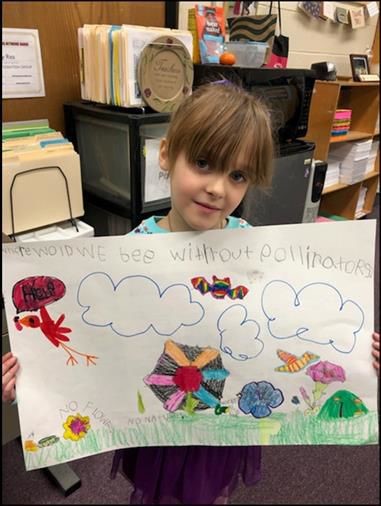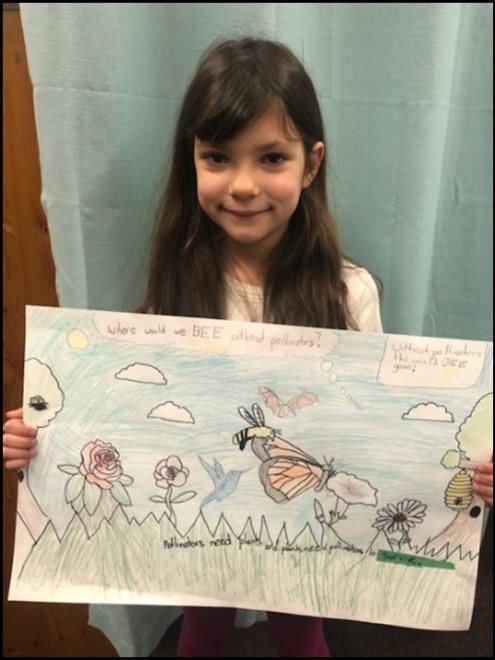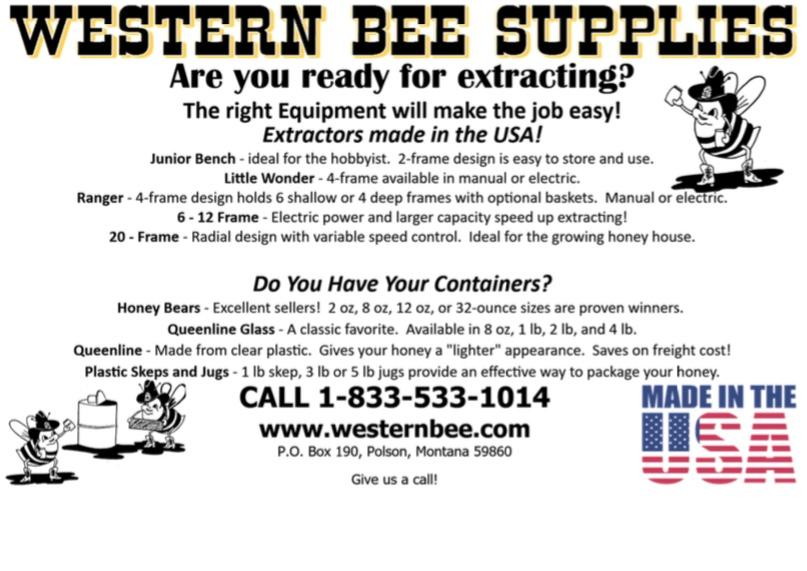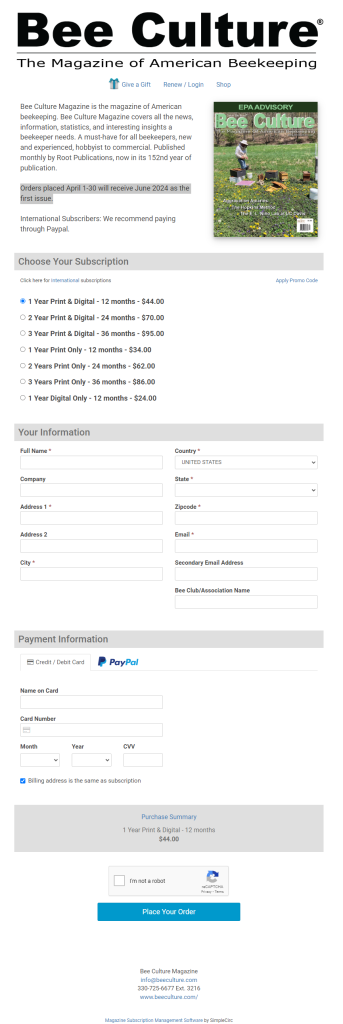Where would we ‘bee’ without THEM?
Campaign highlights importance of pollinators.
Evelyn Graham was selected as the district winner for the K–1st grade category.
Nora Craig was selected as the district winner for the 2nd–3rd grade category.
Nearly 75 percent of the world’s crops require help from pollinator animals, mostly beneficial insects. Without pollinators, we would not eat. Our well-being is directly tied to theirs.
Since the 1950s, pollinator populations have shown concerning signs of decline. Habitat loss, pesticide use and wide-spread disease are leading causes for this change. The annual Conservation Poster Contest, sponsored by the National Association of Conservation Districts, helps students convey the importance of our natural resources using art and imagination, and this year’s theme is “Where Would We BEE Without Pollinators?”
Students across the district took on the challenge of spreading awareness about pollinators this year through the NACD poster contest. Letting their creativity soar, students’ posters showed the need for pollinators as well as future consequences if they are left unprotected. Over 40 posters were submitted to the district for the local level of the poster contest. The district’s education committee then had the challenging but always rewarding task of choosing which posters to send to the state-level of the contest run by the Virginia Association of Soil & Water Conservation Districts’ Educational Foundation.
While the state poster contest is not judged until November, National Pollinator Week is coming up June 22–28. In the meantime, here are five simple things you can do to bee the change:
• Be kind to pollinators. Pollinators come in all shapes and sizes. From bees, to birds, to bats, treat them with kindness. It is easy to accidentally hurt a bug. Be careful when examining them.
• Better yet, look but don’t touch. You can observe them working hard while keeping your fingers away. In general, pollinators won’t hurt you if you leave them be.
• Keep pollinators safe. Take a look at your gardening supplies, and use pesticides only when absolutely necessary. Pesticides are strongly linked to Colony Collapse Disorder, when worker honeybees abandon entire hives. Using less sprays or cutting them out completely can have a big impact on pollinator health in general.
• Invite pollinators to make themselves at home. Plant native trees and flowers around your home that pollinators like to visit for food or that they use to take shelter. Native plants feed and house many more pollinators than a similar non-native plant can. Check out the “Plant Central Rappahannock Natives” guide at plantvirginianatives.org for planting inspiration and information.
Bug someone! Share what you know with someone. You won’t be a pest if you pass these helpful tips along to your friends and family. Talk to them about what we can all do to protect pollinators.
________________________________________________________________________________











